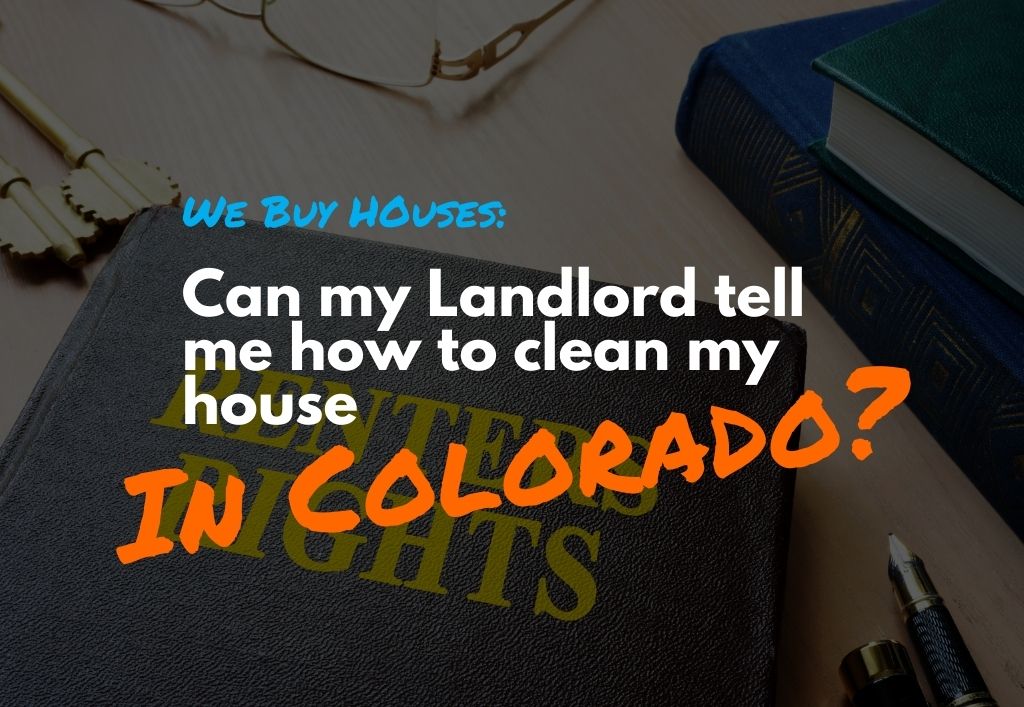
In a Colorado lease, a landlord and tenant can negotiate the terms of cleaning when the lease is up and the tenant decides to leave. When a tenant decides to leave the Denver house or Jefferson County apartment, the landlord has to hire someone to clean up the mess, dirt, and trash. If the landlord wants the tenant to pay for the final cleaning and repairs, it should also be posted in the agreement. The same is true when the eviction of the tenant happens.
Moving is never easy so it pays that both sides understand the contract and all I would highly recommend understand how much it costs to move in Colorado too!
What can be considered as mess or dirt in Colorado
Ideally, when you have a tenant in Colorado they remove all trash and smelly stuff when they leave. But this is not always the case.
Smelly items from rotting items – When biodegradable items are not disposed of properly, it can cause a very unpleasant smell throughout the apartment. Some tenants are sensitive to this kind of carelessness, and it can lead to unpleasant consequences. More importantly, it can also lead to health problems for people living in the same apartment.
Toxic chemicals – Colorado, like every state, has specific rules about what you must do with toxic chemicals. Whether they use these chemicals for work or home cleaning, tenants should not leave these items lying around. If these items are not properly disposed of, it can cause accidents, especially for kids playing around the play area. Tenants should dispose of these items properly to avoid these kinds of problems.
Colorado Clutter – If a tenant has too many unimportant items on their apartment unit (like empty boxes, empty bottles, and piles of papers), the landlord can politely ask the tenant to properly dispose of them. These items collect dust, and they can also be a cause of the fire. Here’s an article that can guide you on how to minimize dust in an apartment.
Mold in Colorado – Colorado is typically a very dry state. So mold is much easier to keep under control in Colorado. Of course, the western slope of Grand Junction is different from Denver or say Fort Collins but again Colorado, for the most part, is When foods and wet items are not properly arranged, mold can grow and multiply. When not controlled immediately, these molds can also grow in the nearby apartment units. Tenants should make sure that all their foods and wet items are properly managed to avoid molds’ growth.
Colorado Rodents Infestation – When foods and biodegradable items are left open in the kitchen, rodents may start to emerge and infest an apartment unit. From there, it will begin to infest other apartment units and do the same thing. To avoid this, renters should place their leftovers in closed plastic or containers to prevent rodents’ infestation.
Rights of the Tenant in Colorado
While I am doing my best to spell out the ly of the land in Colorado I must again say that if you do have questions that you should speak to an attorney. Of course, prevention is always better than cure, and before talking to an attorney try to reason with the tenant first. Listen to what issue they are having and how you might be able to address it together.
Colorado Privacy Policy – A Colorado property owner has to advise a tenant at least 48 hours (2 days) before entering the CO tenant’s home if they want to conduct their inspections. While the proprietor owns the property, borders still have the right to protect their privacy. In case their rights get violated, borders may report or sue the owner for doing such acts.
Make sure your tenant in Colorado has a copy of the lease
Problems may occur in Colorado (even though Colorado is awesome, right!) every once in a while; that is why it is important for both parties to have a copy of the lease contract so they will know how to solve an issue properly. When a problem occurs in Colorado, a tenant can easily see the information written in the lease contract to assess the situation at hand. More importantly, when a dispute happens, a legal expert can easily notice the problem and quickly solve the case.
Abusive Landlord – It never happens in Colorado, right????!!!??
I wish that statement was true! Unfortunately, abuse happens everywhere, in every industry and the Colorado Real estate industry is no different.
Abuse is not that common with me and my friends but it’s out there.
While property owners can tell you how to clean and use the home, there are still some limitations that they need to observe. So, how do you know if your landlord is already abusing their power over you? Here are some signs that you need to look for:
- Threatens you verbally or even physically
- Enters your home without giving prior notice (at least 2 days time)
- Move your personal items without first consulting you
- Invading your personal space and putting unnecessary items/tools in it
- Blocks your driveway when you make a minor mistake
- Refuses to pay for the maintenance service and buy the necessary items when need
- Shows up more frequently than agreed upon to check and see your room for inspections
- Does not return your personal belongings when they find it lying around the place
- Constantly neglect your concerns and questions
- Cuts off your access to certain amenities even though you are paid
- Does not follow the rental laws and ignores the information mentioned in the lease contract
- Treats you unfairly compared to other people renting in the same apartment







